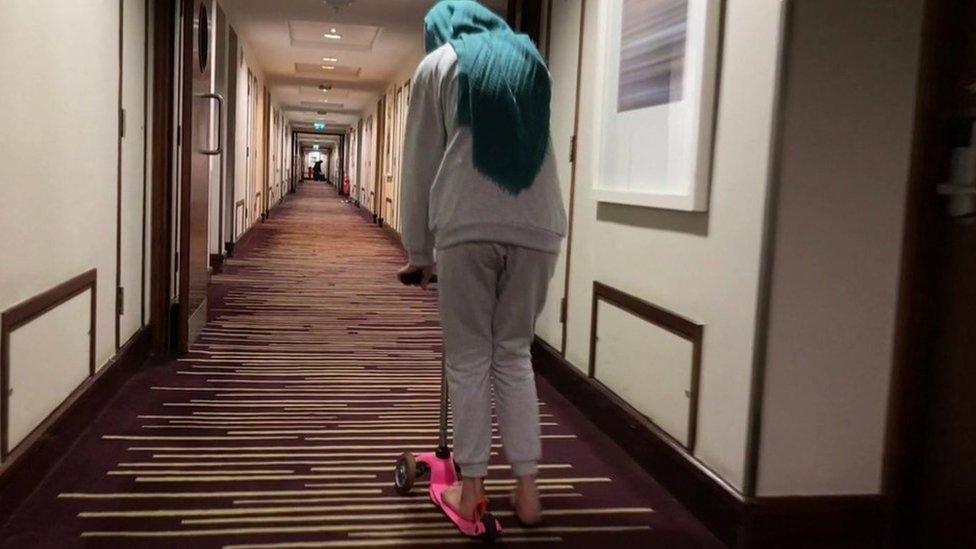Refugees: 'Racist events' stopped resettlement of refugees in NI
- Published
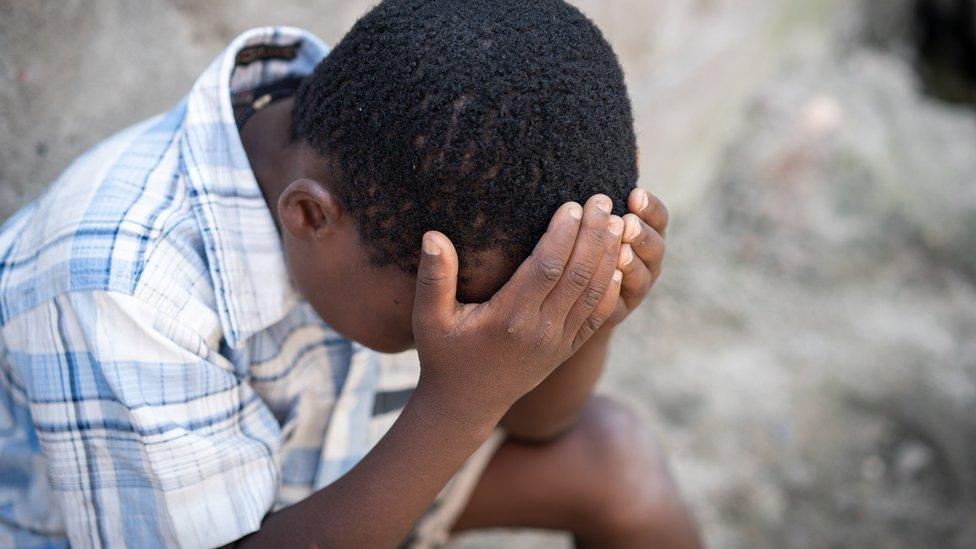
The group of refugees were to be split and settled in a location in Northern Ireland and in Monaghan in the Republic of Ireland
A government scheme to resettle refugees from the Democratic Republic of Congo to Northern Ireland was cancelled after what the Home Office described as "racist events" in Belfast.
BBC News NI understands the Home Office had concerns after racist attacks on the Roma community in 2009.
The Congolese refugees were eventually resettled in Rochdale in England.
More than 800 Afghan refugees are due to arrive in Northern Ireland in 2022.
The UK Border Agency was involved in a project to bring 120 Congolese refugees from a camp in Tanzania to the UK and Ireland.
The group were to be split between Monaghan in the Republic of Ireland and a location in Northern Ireland.
The international programme was operating under the supervision of the United Nations.
The scheme aimed to "resettle the most vulnerable refugees currently living in refugee camps or urban areas whose life, liberty, safety, health or other fundamental human rights are at risk in the country of refuge".
'Racist events'
Until now, little has been known about the scheme but an evaluation of the project carried out at the time, external said "in the event, difficulties were encountered working against a tight timetable to prepare the ground (politically, practically and socially) for the arrival and resettlement of the refugees in Northern Ireland, an area with little experience of managing the resettlement of refugees".
A freedom of information request led to more detail being provided.
The response stated: "Due to issues around timing and preparedness of Northern Ireland host communities, and taking into consideration the unfortunate impact of the negative media coverage following racist events in Northern Ireland in 2009, the decision was taken in July of that year, not to resettle refugees to Northern Ireland at that time."
The decision to delay the scheme meant some of those due to travel to Northern Ireland had to remain at the refugee camp for an extra year.
In 2009, Northern Ireland made headlines across the world, external after a number of racist attacks on Roma families.
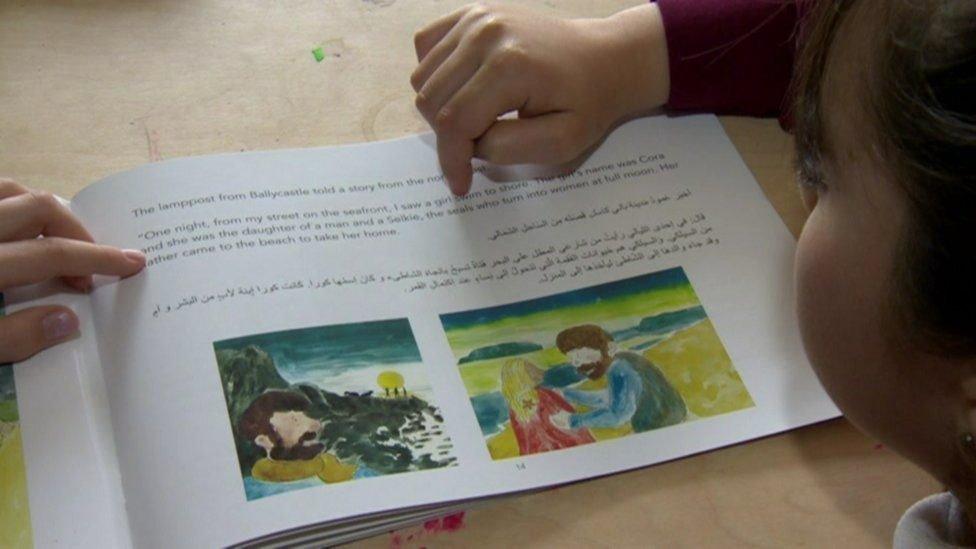
Nearly 2,000 Syrian refugees have been resettled in Northern Ireland since 2016
About 100 members of the Roma community left their homes and had to seek refuge in church halls and leisure centres before the Northern Ireland Executive arranged transport for them back to Romania, external.
Baroness Margaret Ritchie met some of those affected at the time in her role as Stormont's social development minister, with responsibility for housing.
She said the Roma people had to be relocated to Belfast's Olympia Leisure Centre "for their own safety".
The baroness said she remembered the families carrying their belonging in plastic bags.
"My heart went out to these people and I felt that we had to do something in terms of social justice to help them."
The families were given temporary accommodation in former student halls of residence in Belfast, before the Romanian ambassador travelled over from London to organise their repatriation.
"He undertook to ensure that they were relocated back to their own homes in north-east Romania and we paid for that transportation by bus and by plane," Ms Ritchie said.
BBC News NI's Good Morning Ulster programme understands that it was in the aftermath of those events that the decision was taken not to bring the refugees from DR Congo to Northern Ireland.
Since 2009, things have changed and almost 2,000 Syrian refugees have been resettled in Northern Ireland since 2016 through a UK government scheme.
The Stormont executive has also committed to resettle about 800 refugees from Afghanistan in 2022.
'Prejudice and bias'
When contacted by BBC News NI, neither the Home Office nor the Northern Ireland Executive answered our questions about the reasons for cancelling the scheme.
The Stormont Executive Office said: "The situation in respect of refugees and asylum seekers has changed considerably over the past number of years.
"We have a relatively small but increasing minority ethnic population, which is bringing welcome diversity to our local communities.
"While we believe this is a welcoming place, we recognise that unfortunately there will be a small number of individuals in society who still demonstrate prejudice and bias.
"Through initiatives such as the racial equality strategy and the draft Refugee Integration Strategy, which is currently out for public consultation, we are committed to making this a place built on equality and respect where everyone can live fulfilled lives and realise their full potential."
The Home Office said the UK government had "a proud history of supporting refugees through safe and legal routes".
"We are grateful to Northern Ireland for their efforts in the UK's resettlement schemes and for their participation in supporting asylum seekers," it added.
The Lord Mayor of Belfast of Kate Nicholl said she believed the people of Northern Ireland are more welcoming to refugees but there were "serious issues" with government policies.
"Things are really sensitive right now. We know that the public are generally more accepting but the services are really stretched," Ms Nicholl told Good Morning Ulster.
"We're seeing a much bigger jump now in the number of asylum seekers coming here and the services are struggling to respond."
The lord mayor added: "If you look at how successful Syrian integration was, that was largely as a result of community doing great work, and I think that there's a lot that needs to be done."
'Lack of capacity'
The current South Belfast MP Claire Hanna said it was "upsetting" to learn that the Congolese resettlement did not go ahead but she said she believed Northern Ireland had changed a lot in the last 12 years and become a more diverse place.
"While there's always been, unfortunately here, a minority of people who are unable to accept difference, the vast majority of people understand that things like conflict and climate change are driving the movement of people and that some of them have to be able to find refuge and build new lives here.
"Many, many people want to be able to help them do that and we just need to have the governance support to allow that to happen in a managed and organised and constructive way," the MP added.
Refugee support worker Suleiman Abdulahi said be believed that a lack of government support was the "real reason" that more people do not seek refuge in Northern Ireland, rather than racism.
Mr Abdulahi fled his homeland of Somali in 1991 and later moved to Northern Ireland, where he founded the support group Horn of Africa People's Aid Northern Ireland (HAPANI).
"I think it's a lack of capacity, a lack of strategy, and that is the real cause of [why] people will not come to Northern Ireland," he told Good Morning Ulster.
"It could not be blamed on the public... Northern Ireland is a place of welcoming and sanctuary for people who come in and I have no doubt speaking from working over the last 10 years, that the support we get from the public is much greater than the support we get from the government."
- Published12 November 2019
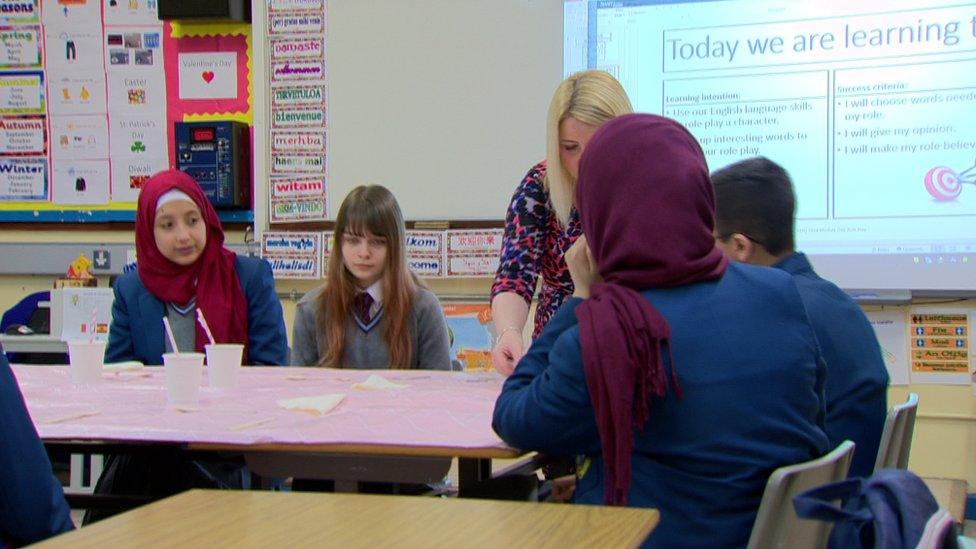
- Published20 September 2020
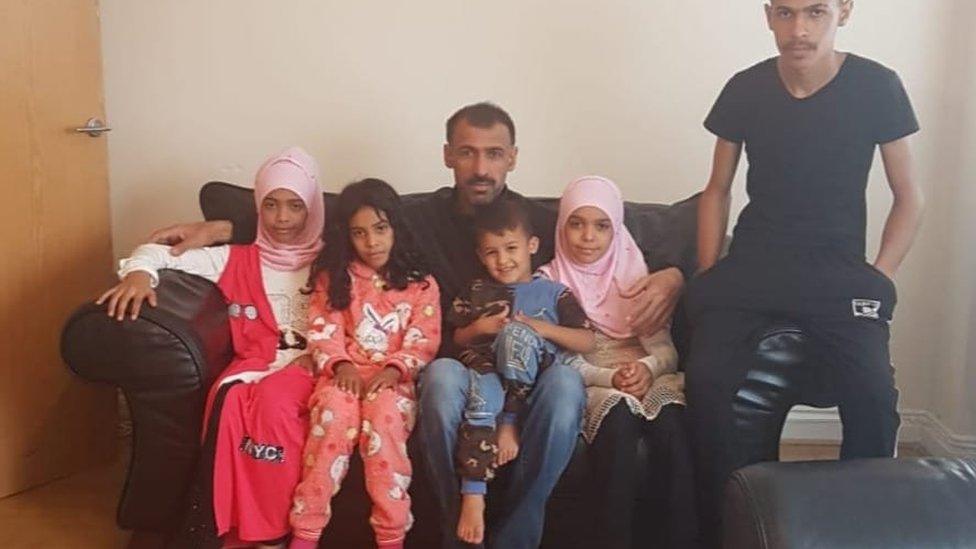
- Published15 December 2021
